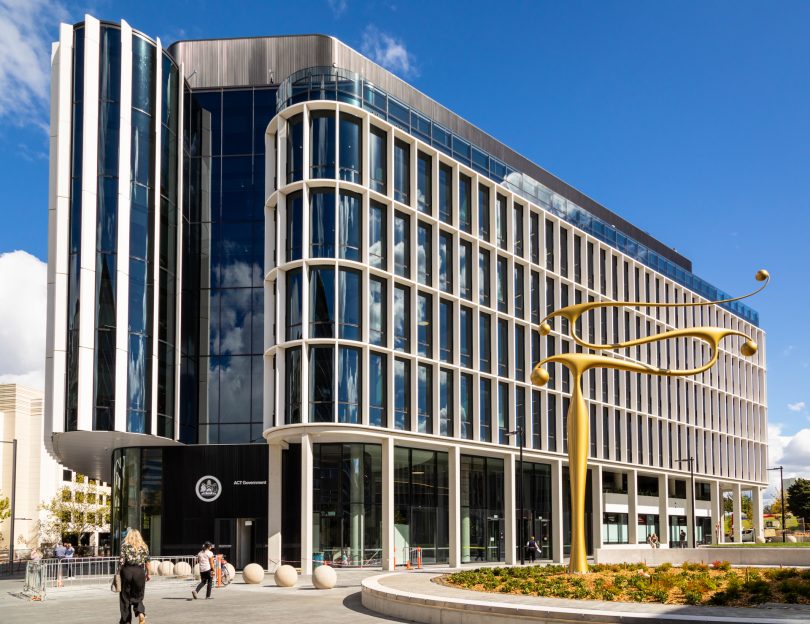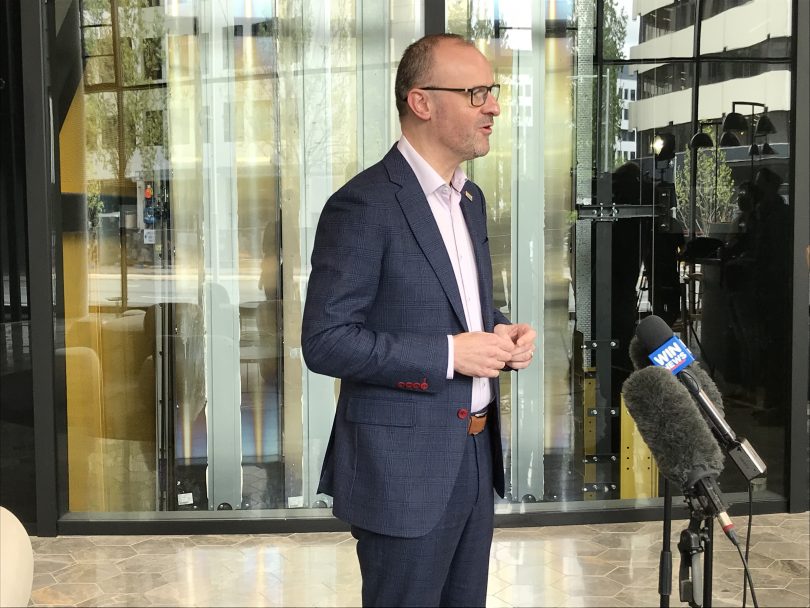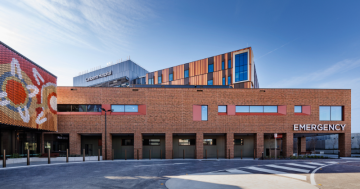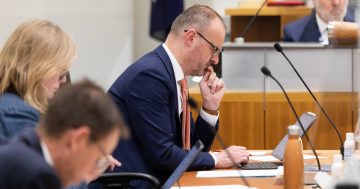
The number of ACT public servants affected by hybrid working arrangements is too small to have any real effect on “bring life to the city”, Chief Minister Andrew Barr says. Photo: Michelle Kroll.
Faced with the same criticism about hybrid-working arrangements for the ACT Public Service and their affect on businesses for the third time in a month, Chief Minister Andrew Barr has again defended the ACT Government’s approach to returning to work.
The Chief Minister also strongly disagreed with the argument that bringing all ACT public servants back to a traditional 9 to 5, five days a week in the office in the CBD would “bring life back to the city”.
In annual report hearings yesterday (24 February), Mr Barr issued a stern reprimand for anyone who views public servants as “consumer fodder”.
A weary Mr Barr again presented the case, as he did last Friday, that the pool of ‘white collar’ CBD public servants affected by hybrid work models is too small to have an impact.
Of the 50,000 people who work in the CBD, ACT public servants make up only 900 to 1100 and work in the Constitution Place building, while others will return to the Finlay Crisp buildings once renovations and refurbishments are complete.
The rest of the ACT’s public servants are already in face-to-face roles and work in sectors like transport, education, health and services, “so the ACT public service is not going to be a big contributor to more footfall in the CBD because nearly 95 per cent of our staff don’t work in the CBD”, Mr Barr said.
The rest of the office workers in the CBD either work for the Australian Public Service – where a gradual return to work is already underway – or in the private sector.

Chief Minister Andrew Barr strongly criticised an argument that public servants are simply “units of consumption”. Photo: Lottie Twyford.
The Chief Minister has repeatedly come under fire from the Opposition, which has alleged multiple small businesses in city centres like cafes, dry cleaners and newsagents will fold if public servants do not return to the office.
Mr Barr has repeatedly argued against this assertion.
“Not everybody will come into the office every day, and we’re not shoehorning people back in,” Mr Barr argued.
“They are not robots and they are not units of consumption. Their job is to do work for the people of the ACT, not to consume in our economy. That’s their private business.
“I need to absolutely and categorically address this idea that public servants are just consumer fodder; they are not, and I don’t accept that, and they won’t ever be,” he said.
In December last year, the Chief Minister foreshadowed that the days of 9 to 5, five days a week in the office are over for ACT public servants.
He reiterated this comment yesterday, telling the hearing the “world has changed” and the hybrid work model is here to stay.
Mr Barr said last year the ACT Government is already in the process of decentralising its workforce so people can work in buildings in the town centre that is most convenient to them and at home.
“They may well be working out of the Gungahlin ACT Government office building if they live in Gungahlin and that suits them, and they may well be working out of the Woden ACT Government building if they live in the Woden area and that suits them; similarly, in Tuggeranong, in Belconnen, in the city and in Dickson,” Mr Barr told the Legislative Assembly last year.
“So there will no longer be an operating requirement of compulsory attendance, if you like, at an ACT Government office building 9 to 5.”
When the ACT lifted a swathe of public health restrictions last week, government advice on working from home was also downgraded to “employees can return to the workplace if it suits them and their employer”.
Canberra Business Chamber CEO Graham Catt told Region Media this would come as a welcome relief for city businesses, in particular.
“Getting workers back to the workplace is a critical step in that recovery,” he said.
Mr Catt added this could help contribute to a v-shaped recovery if consumer confidence was also in place.
But Mr Barr is clear on one point – the world, and the economy, has changed, and there won’t ever be a return to pre-2020 working life.





















